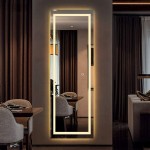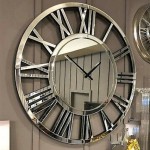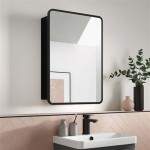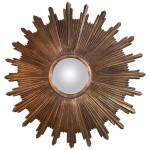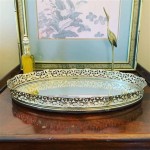How To Cover a Mirror in the Bedroom at Night
The practice of covering mirrors in the bedroom at night is steeped in a combination of folklore, spiritual beliefs, and practical considerations. While the modern understanding of light and sleep cycles may offer scientific explanations for some motivations, the historical and cultural context provides a deeper appreciation for this often-observed habit. Understanding the rationale behind covering mirrors can help individuals decide if this practice aligns with their personal beliefs and needs.
Throughout history, mirrors have been viewed with a degree of suspicion and mystery. In many cultures, mirrors are not simply reflective surfaces but are considered portals to other realms or vessels capable of trapping souls. This belief stems from the mirror's ability to create a perfect, albeit inverted, reflection of reality. The idea is that the reflection isn’t just a visual image; it possesses some essence of the individual or object reflected. This perspective has led to various customs surrounding mirrors, particularly in situations involving death and sleep, both considered vulnerable states.
The tradition of covering mirrors during mourning periods is a common example. The rationale often includes the fear of the deceased's spirit becoming trapped within the mirror or the belief that the mirror could reflect the deceased's image back into the world, causing distress to the living. Covering mirrors during sleep times, while less prevalent, draws on similar underlying concerns about vulnerability and the potential for negative spiritual influences.
From a more practical perspective, the concern about light reflection plays a role. Even the faintest light can be amplified by a mirror, potentially disrupting sleep patterns. In bedrooms with windows facing streetlights or illuminated buildings, mirrors can redirect this light, creating an environment less conducive to deep, restful sleep. Furthermore, the sudden appearance of one's reflection in a dimly lit room can be startling and unsettling, contributing to anxiety rather than relaxation.
Spiritual and Superstitious Beliefs
The most significant driver behind covering mirrors at night is often rooted in spiritual beliefs and superstitions. Many cultures believe that the soul leaves the body during sleep, embarking on a spiritual journey or existing in a more vulnerable state. During this time, the soul is believed to be susceptible to various influences, including being trapped or harmed by reflections in mirrors.
The idea of a mirror acting as a portal is central to this concern. If the soul is vulnerable and the mirror is a portal, there's a perceived risk of the soul inadvertently crossing into another dimension or being intercepted by malevolent entities residing on the other side. Covering the mirror effectively closes the "portal," offering a layer of protection for the soul during its nightly travels.
Furthermore, some believe that mirrors can amplify negative energies within a room. If an individual is experiencing stress, anxiety, or other negative emotions, a mirror might be perceived as absorbing and then reflecting these energies back, creating a cycle of negativity. Covering the mirror prevents this amplification, fostering a more peaceful and harmonious sleep environment.
In some traditions, it is believed that mirrors can reflect back dreams, disrupting the natural process of subconscious processing and potentially leading to nightmares or disturbed sleep. By covering the mirror, the dreams are allowed to unfold naturally without being interfered with or distorted by the reflective surface.
It is crucial to acknowledge that these beliefs are often deeply personal and culturally specific. The degree to which an individual adheres to these superstitions will significantly impact their decision to cover mirrors at night. While some may dismiss these beliefs as unfounded, others find comfort and reassurance in adhering to these time-honored practices.
The Impact of Light and Sleep Quality
Beyond spiritual beliefs, there's a strong practical argument for covering mirrors based on their effect on light reflection and sleep quality. Light is a crucial regulator of the circadian rhythm, the body's natural sleep-wake cycle. Exposure to light, especially blue light emitted from electronic devices, can suppress the production of melatonin, a hormone that promotes sleepiness. Even small amounts of light can disrupt this process, leading to difficulty falling asleep, staying asleep, or experiencing deep, restorative sleep.
Mirrors, by their very nature, amplify any existing light in a room. A streetlight shining through a window, the glow of a digital clock, or even the faint light from a hallway can be reflected and scattered by a mirror, effectively increasing the overall light level in the bedroom. This increased light exposure can interfere with melatonin production and disrupt the sleep cycle.
Furthermore, the sudden appearance of one's reflection in a dimly lit room can be startling and disruptive. Even if the reflection is barely visible, the subconscious awareness of its presence can create a sense of unease or anxiety, making it harder to relax and fall asleep. This is particularly relevant for individuals who are prone to anxiety or have a heightened sensitivity to their surroundings.
Covering the mirror eliminates this potential source of light reflection and visual disturbance, creating a darker and more peaceful sleep environment. This can be particularly beneficial for individuals who live in urban environments with high levels of light pollution or those who are sensitive to light during sleep.
From a purely scientific standpoint, minimizing light exposure in the bedroom is a well-established strategy for improving sleep quality. Covering mirrors is a simple and effective way to reduce unwanted light reflection and create a more conducive environment for restful sleep. Even if an individual does not subscribe to the spiritual beliefs associated with covering mirrors, the practical benefits for sleep quality are undeniable.
Psychological Comfort and Personal Preference
Beyond the spiritual and practical considerations, the decision to cover mirrors at night can also be driven by psychological comfort and personal preference. For some individuals, the act of covering mirrors provides a sense of security and control, allowing them to create a more personalized and calming sleep environment.
The sense of control is particularly relevant for individuals who experience anxiety or have a heightened awareness of their surroundings. Covering the mirror eliminates a potential source of visual distraction and allows them to focus on relaxation and sleep. It's a tangible action that can help to alleviate feelings of unease or vulnerability.
Furthermore, the act of covering mirrors can become a part of a bedtime routine, a ritual that signals to the mind and body that it's time to prepare for sleep. This ritualistic behavior can be particularly helpful for individuals who struggle with insomnia or have difficulty winding down at night. The consistent routine provides a sense of predictability and comfort, making it easier to transition into a state of relaxation.
Ultimately, the decision to cover mirrors at night is a personal one. There is no right or wrong answer, and the choice should be based on individual beliefs, preferences, and needs. Some individuals may find the practice to be beneficial for their sleep quality and overall well-being, while others may find it unnecessary or even disruptive.
The key is to be mindful of one's own personal experience and to experiment with different strategies to determine what works best. If covering mirrors provides a sense of comfort, security, or improves sleep quality, then it is a worthwhile practice to continue. If, on the other hand, it feels cumbersome or unnecessary, then there is no need to adhere to this tradition. Understanding the various motivations behind covering mirrors allows individuals to make an informed decision and create a sleep environment that is conducive to their own unique needs and preferences.

Where To Put A Mirror In Your Bedroom Feng Shui Tips Worst Room

Mirror Behind Nightstand Ideas And Canopy Bed Soul Lane Bedroom Design Night Stands

20 Beautiful Bedrooms With Mirrors Above Night Stands Home Design Lover Bedroom Mirror

20 Beautiful Bedrooms With Mirrors Above Night Stands Home Design Lover Elegant Bedroom Contemporary

Where To Place A Mirror In Bedroom 6 Best Places According Feng Sh Hollywood Mirrors

34 Mirrors Behind Nightstands To Compliment Your Bedroom

Mirror Magic Elevating Your Bedroom Design With Reflective Elegances And Beyond

Mirror Above Bed Creative Bedroom Decor

5 Reasons Why You Should Never Put A Mirror Facing The Bed Melanie Jade Design

Luxury Bedroom Furniture Mirrored Night Stands White Headboard Luxurious Bedrooms Home

